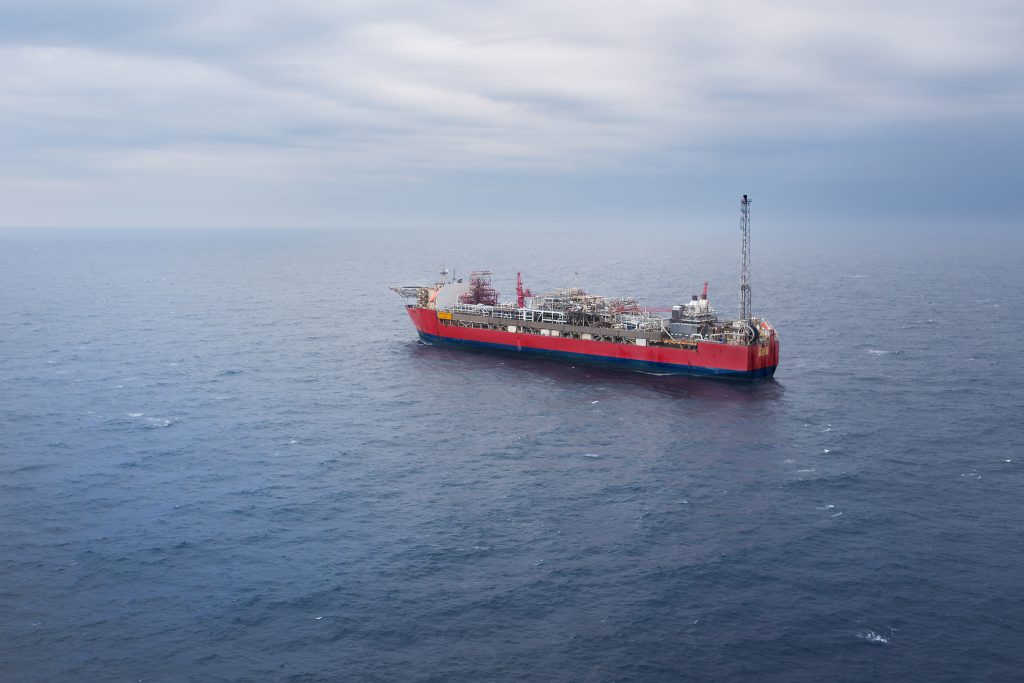Nobel Upstream has offered to buy the Gryphon floating production storage and offloading (FPSO) vessel from current operator TotalEnergies.
Speaking exclusively to Energy Voice, Nobel Upstream chief executive Larry Bates and head of commercial Nicholas Pogson said: “We have already made an offer to Total to buy the asset.
“By taking it on, it would allow us to continue production for the remainder of its economic life and get it off Total’s books.”
The French supermajor shut down production from Gryphon at the start of the year, in line with its previously filed decommissioning plan from 2023, which envisions work taking place later this year and lasting until 2026.
The Gryphon FPSO is connected to five fields, including Gryphon North and South along with subsea tiebacks to the Maclure, Tullich and Ballindaloch fields.
Nobel Upstream holds a 7.6% stake in Maclure, with operator TotalEnergies holding 38.2%, Taqa 37% and Apache 17.2%. Nobel also holds 8% in Ballindalloch and TotalEnergies holds the 92% operating stake.
Nobel Upstream has previously voiced its opposition to the shutdown and decommissioning plan, launching a lawsuit against the move.
The judicial review claimed that decommissioning Gryphon would force the company to abandon not just its two fields, but the UK North Sea altogether.
“At present, this is the right asset in the wrong hands,” Bates and Pogson said. “We are ready to redress that.
“It would have been a lot easier for us as a company to walk away, but we are not going to walk away from an asset we know is cash-flow positive. We have written to Total CEO Patrick Pouyanne to make this offer directly.”
Economics
TotalEnergies (PAR:TTE) holds an 86.5% operating interest in the Gryphon FPSO, alongside Sojitz Energy Development (13.5%), having inherited the asset through its 2018 of takeover Maersk.
The vessel accounts for around 1% of the UK’s oil production and less than 1% of its gas production.
“At the time production into the FPSO was stopped it was at roughly 12,000 boe per day. Gas production last year was sufficient to heat 250,000 homes, or roughly 10% of Scotland’s households,” Bates and Pogson said commented.
“There’s no planet upon which 12,000 boe per day is not economic. We are confident the continuation of oil and gas production into the FPSO is cash-flow positive. There is no case to shut that down.”
The Gryphon FPSO received certification from DNV that found no issues with the vessel’s condition and verified it until November 2027.
In 2021, Total made plans – supported by partners Sojitz, Nobel Upstream, TAQA and Apache – to extend Gryphon’s operating life until the end of 2027.
However, in 2023, TotalEnergies announced it aimed to strengthen its climate objectives. This included reducing the emissions target from its operated facilities to less than 38m tonnes of CO2 equivalent in 2025, compared to 2015 – down from 40m tonnes previously.
“Coincidentally, in March 2023, Total first announced their intention to cease production from the FPSO,” Nobel said.
According to Bates and Pogson, this is the reason for Total pushing ahead with its plan to decommission the Gryphon FPSO.
“We believe these targets are the fundamental driver behind the decision taken by Total’s Aberdeen organisation to sacrifice production over the FPSO, despite the FPSO operating well within its environmental consents granted by the UK regulator.”
Since TotalEnergies’ takeover, and prior to DNV’s certification of the vessel, Gryphon has been taken to the task by the Health and Safety Executive (HSE). In 2021, it received an improvement notice due to a backlog of “safety and environmental-critical” maintenance.
In 2022, the HSE also issued an improvement notice over failures in TotalEnergies’ maintenance processes on the vessel during gas compressor maintenance.
Nobel said that by taking over the asset, they would effectively cap TotalEnergies’ decommissioning liability while deferring the cost for at least three years.
Intervention
TotalEnergies’ decommissioning plan for the Gryphon FPSO is still awaiting final approval by the Department for Energy Security and Net Zero (DESNZ).
However, Nobel warned that decommissioning the Gryphon FPSO goes against the OGA Strategy, published by the North Sea Transition Authority’s (NSTA) predecessor, which calls on companies that cannot maximise the value of economically recoverable oil or gas to divest the licences or infrastructure to those that can.
“Shutting economically viable production down early is absolutely in conflict with that and is fundamentally contrary to the national interest,” Bates and Pogson said.
“What we want, very simply, is for the government and the NSTA to apply the law, to maximise economic recovery of oil and gas in the North Sea.”
They said that the NSTA should intervene in Gryphon’s shutdown, though this would hinge on the economic case for the vessel, as the OGA Strategy prevents the NSTA compelling an operator to act when it is uneconomical.
Meanwhile, a court decision on whether to grant permission to pursue Nobel’s judicial review is not expected until the end of the first quarter of 2025.
“There is no reason for Total to shut-in production while the approval process continues,” Bates and Pogson said.
TotalEnergies, the NSTA, TAQA and Apache all declined to comment.
Recommended for you











